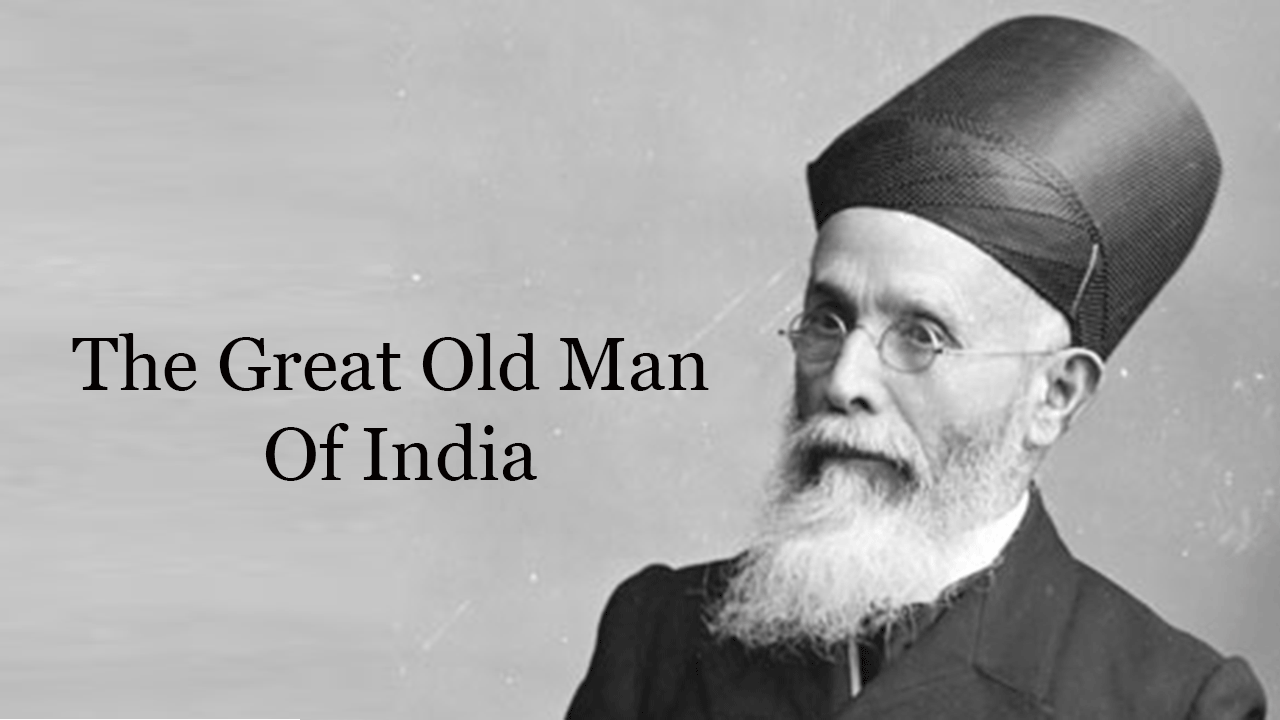
Dadabhai Naoroji: The Grand Old Man of India
In the annals of India’s struggle for independence, there are few figures as venerable and influential as Dadabhai Naoroji. Often hailed as the “Grand Old Man of India,” Naoroji was a towering intellect, a pioneering economist, and a tireless advocate for Indian self-rule. His life and work left an indelible mark on the trajectory of Indian nationalism, shaping the consciousness of generations and laying the groundwork for India’s eventual independence.
Naoroji was born on September 4, 1825, in Bombay (now Mumbai), into a Parsi family with a rich tradition of social and intellectual engagement. From a young age, he displayed a prodigious intellect and a keen interest in public affairs. His early education at Elphinstone College and subsequent studies in England laid the foundation for his lifelong commitment to the cause of Indian upliftment and empowerment.
Naoroji’s career as an academic and public intellectual was distinguished by his groundbreaking contributions to the field of economics. He was among the first Indians to receive a formal education in economics in England, where he studied at University College London and became deeply influenced by the ideas of classical economists like Adam Smith and David Ricardo.
Naoroji’s seminal work, “Poverty and Un-British Rule in India,” published in 1901, laid bare the economic exploitation of India under British colonial rule. Through meticulous research and incisive analysis, Naoroji exposed the drain of wealth from India to Britain, highlighting the inequities inherent in the colonial economic system. His pioneering study provided a theoretical framework for understanding the economic dimensions of India’s subjugation and became a rallying cry for nationalists seeking independence.
Beyond his academic pursuits, Naoroji was a stalwart advocate for Indian political rights and representation. In 1866, he founded the East India Association in London, a platform for lobbying British policymakers and public opinion on behalf of Indian interests. Through his speeches, writings, and advocacy efforts, Naoroji sought to raise awareness about the injustices of British rule and mobilize support for Indian self-rule.
Naoroji’s commitment to political activism was further demonstrated by his election to the British Parliament in 1892, becoming the first Indian to serve as a Member of Parliament (MP). Despite facing racial prejudice and institutional barriers, Naoroji used his position to champion the cause of Indian nationalism and advocate for legislative reforms aimed at redressing the grievances of the Indian people.
Throughout his life, Naoroji remained steadfast in his belief in the inherent capacity of the Indian people for self-governance. He rejected the notion of racial superiority and argued passionately for Indian representation and participation in the governance of their own country. Naoroji’s famous maxim, “Swaraj is my birthright, and I shall have it,” encapsulated his unwavering faith in the inevitability of India’s eventual independence.
Naoroji’s legacy as a visionary statesman, scholar, and nationalist icon continues to resonate in India and beyond. His pioneering contributions to the fields of economics and political theory laid the groundwork for India’s emergence as a modern nation-state. His advocacy for Indian self-rule and his unwavering commitment to social justice and equality inspired generations of Indians to strive for a more just and equitable society.
As India commemorates the heroes of its freedom struggle, let us not forget the towering legacy of Dadabhai Naoroji. His life and work serve as a timeless reminder of the power of intellect, integrity, and unwavering commitment to the cause of justice. In honoring his memory, we pay tribute to the enduring spirit of Indian nationalism and the quest for a better, more inclusive world.










